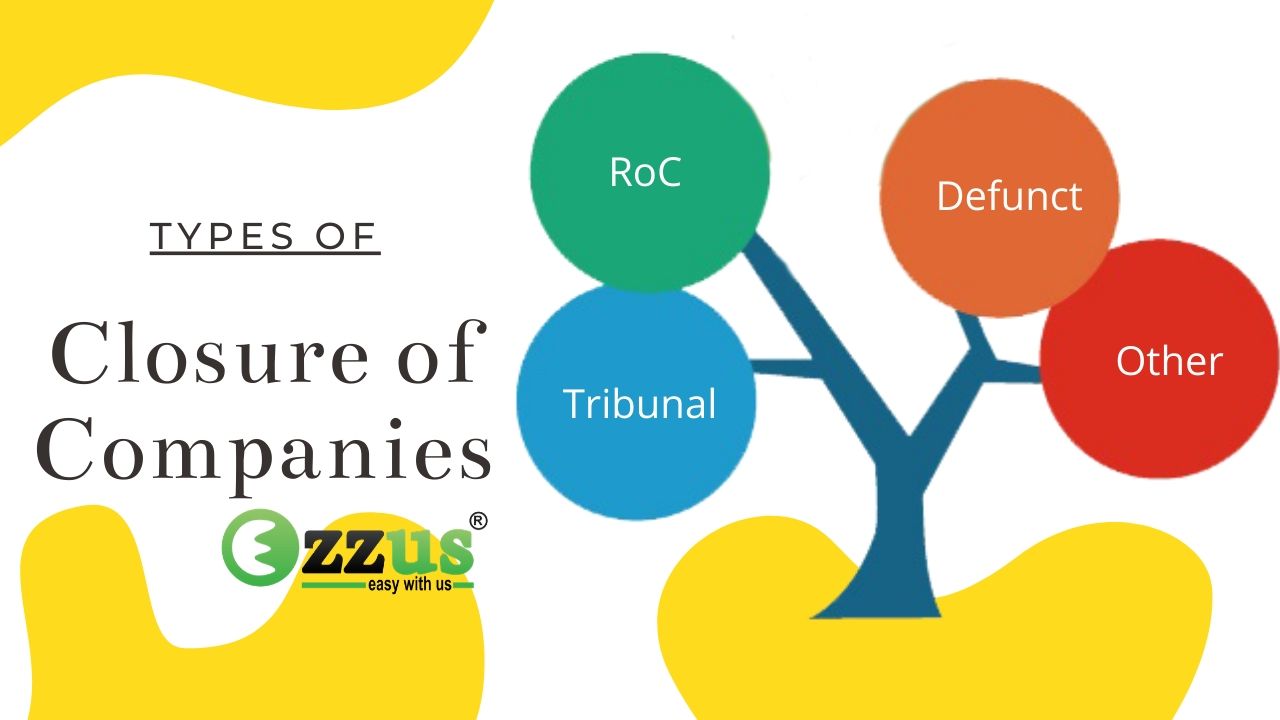Closure of Companies
“It Is Better To Abandon A Sinking And Damaged Ship Than To Sink With It”
Sometimes we register a company for a business idea that we wanted to implement, and for whatever reason it doesn’t work, we don’t even start work. There are also times where we register a company for a future project and often such companies are not actually operational.
Or when your private limited company business is not working properly or is facing persistent losses, it is best to close the private limited company and search for a new start. A private limited company will be suspended or wound down if there are no exchanges or if the owners of the company are not able to carry out their activities. In general, a private limited company may be shut down on both voluntary and mandatory grounds.
There are various compliances that need to be followed after a business has been registered, and it takes a cost to satisfy them. Why would want to pay more for a business that doesn’t operate in the first place?
DIFFERENT WAYS OF CLOSURE OF THE COMPANY
Closer of company By Tribunal
- Compulsory Winding Up – Closer of Company by Tribunal on order
- VoluntaryWinding Up- Closer of Company by Tribunal on application by company
Closure of Company By Registrar of Companies
- Sue moto Strike Off by ROC
- Strike Off by ROC on application made by company – Fast track Exit mode
Closure of Defunct/Dormant Company
- Defunct Company Winding Up
Other Alternatives for closer of companies
- Sell the Company
- APPLYING FOR “Dormant status”
- Conversion of Company into LLP Status.
A brief note on
“Winding up is a means by which a company is dissolved and its assets are realized and used in the payment of its debts. After the debts have been settled, the remaining amount, if any, shall be paid back to the creditors in proportion to the contribution made by them to the capital of the company.
- Compulsory Winding Up – Closer of Company by Tribunal on order-
When the company, formed and registered under the ordinance, has been ordered to be wind up by the Court or Tribunal the same is known as compulsory winding up of a company.
- VoluntaryWinding Up- Closer of Company by Tribunal on application by company
A company may, voluntary wind up its affairs, if it is unable to carry on its business, or if it was formed only for a limited purpose, or if it is unable to meet its financial obligation, and etc. A company may voluntary wind up itself, under any of the two modes:
- Members voluntarily winding up.
- Creditors voluntarily winding up.
- Sue moto Strike Off by ROC
Once the name of the company has been entered into the Registrar, it can not be removed unless the company applies to it or is processed by law. If the company fails to begin its business or fails to send annual reports, the registrar may, on its own, terminate the name of the company.
- Strike Off by ROC on application made by company – Fast track Exit mode
A company may submit an application to the Registrar of Companies in E-Form STK-2 upon discharge of its liabilities. That may be achieved by passing a special resolution, which must be approved by 75% of its members.
The company may submit an application to the Registrar of Companies for revocation of the name by filing STK-2 along with a fee of Rs 10000/-.
- Defunct Company Winding Up
As per the Companies Act, 2013, the Defunct Company is a company that has obtained the status of a Dormant Company. The government gives some relief to such a defunct or inactive company as there are no financial transactions undertaken by dormant companies.
A Defunct company is a company which has:
- Nil asset and nil liability, and
- Not commenced any business or activity since its incorporation
- Not been carrying any business operation since last one year.
- Sell the Company
It is also a kind of voluntary winding-up to sell off a private limited business. This can be achieved by selling the shares of the company (selling the controlling shareholding of the company). Technically speaking, this is not an actual winding-up, but the shares are passed to another individual or company and the majority shareholders are discharged from their stocks and obligations.
- APPLYING FOR “Dormant status”
A company can apply for obtaining status of dormant company
- when business owners are planning to start a business in near future.
- If company owners intend to restructure a company,
- If an extended period of time is needed for the owner of the company on grounds of sickness, travel, maternity leave, sabbatical, etc.
The Dormant company enjoys various advantages:-
- need not to file two (2) forms for annual filing, i.e. MGT-7 and AOC-4 each year;
- no need to hold annual general meetings every year;
- no need to conduct and convene four (4) Board Meetings.
- not have to show cash flow statements
- rotation of the auditors does not apply.
- Conversion of Company into LLP Status.
When a private Limited Company is not in compliance of Law and its requirements and planning to continue its business in less cost and compliances, The Company may Convert itself into LLP (Limited Liability Partnership).as LLP has less compliances and other benefits:
- Less compliance costs
- No Audit Required.
- No Limit on Members.
- no restrictions on related party transactions.
- Management of funds depends entirely on the members’ wish.
This Article Contains only the options available for closure of company. a Brief of every process is separately written.
ISCLAIMER: The entire contents have been developed on the basis of relevant information and are purely the views of the authors. Though the authors have made utmost efforts to provide authentic information however, the authors expressly disclaim all or any liability to any person who has read this document, or otherwise, in respect of anything, and of consequences of anything done, or omitted to be done by any such person in reliance upon the contents of this document. Reader should seek appropriate counsel for their own situation. I shall not be held liable for any of the consequences directly or indirectly.
Any other suggestions /opinions are welcomed.
Regards
Author: CS Megha Sharan (Company Secretary in Practice)
Contact No 9650082009
Email: ezzusindia@gmail.com
Ezzus India Team




Comment here